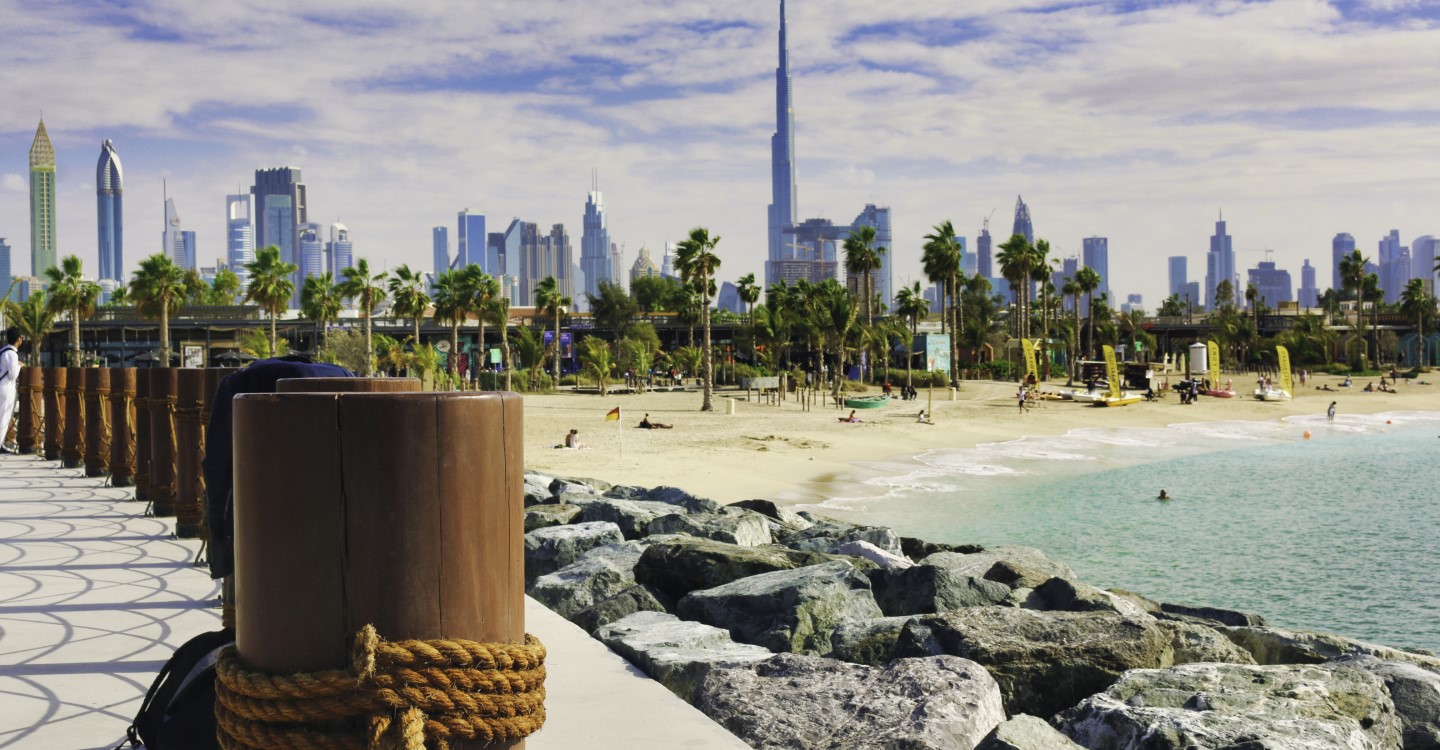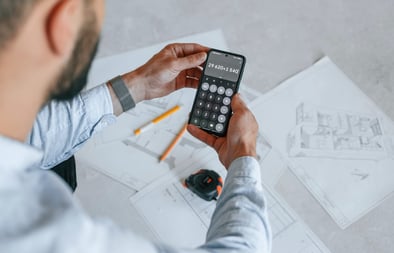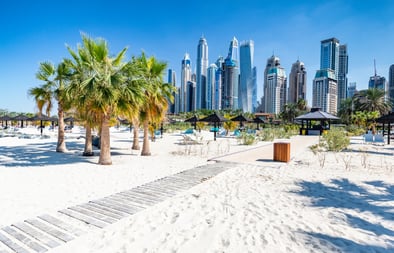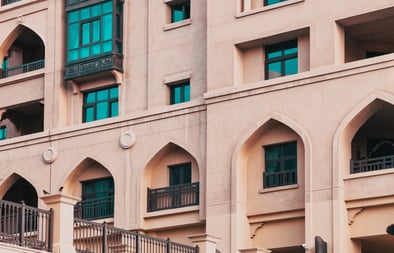
Transferring property ownership in Dubai is a multifaceted process that demands meticulous attention to detail and adherence to legal protocols. It represents a pivotal juncture for both buyers and sellers, marking the transition of ownership rights with legal precision. A comprehensive understanding of this process is not only advisable but imperative to navigate through potential challenges and ensure a seamless transfer.
In this comprehensive guide, we delve into the intricacies of property ownership transfer in Dubai, offering a detailed roadmap from the initial stages of contract negotiation to the final steps of registration with the Dubai Land Department (DLD). Whether you're embarking on a property purchase journey or considering the sale of your existing property, this guide aims to equip you with the knowledge and insights necessary to navigate this complex terrain confidently.
Throughout this exploration, we'll illuminate key considerations, legal requirements, and procedural nuances that underpin the property transfer landscape in Dubai. By unraveling the intricacies of each step, we empower you to make informed decisions, mitigate risks, and streamline the transfer process effectively. Whether you're a seasoned investor or a first-time buyer/seller, this guide serves as your comprehensive companion on the journey of property ownership transfer in Dubai.
Initial Agreement: The initial agreement marks the foundational step in the property transfer process in Dubai. It serves as the legal document that formalizes the transaction between the buyer and seller, outlining the terms and conditions that both parties have agreed upon.
Within this agreement, crucial details are specified, such as the purchase price of the property, the mode of payment (whether it's a lump sum or installment basis), the timeline for payment, and any other pertinent terms related to the transfer. Additionally, the agreement may include clauses regarding the transfer of ownership rights, responsibilities of both parties during the transfer process, and any contingencies or conditions that need to be met for the transfer to proceed smoothly.
This initial agreement is a pivotal document as it lays the groundwork for the entire transfer process. It establishes the framework within which the transaction will take place and provides a legal basis for both parties to fulfill their obligations and expectations. Therefore, it's crucial for both buyers and sellers to thoroughly review and understand the terms outlined in the initial agreement before proceeding with the property transfer in Dubai.
Due Diligence: Before proceeding with the transfer, both parties must conduct due diligence to ensure that the property is free from any encumbrances, disputes, or legal issues. This may involve obtaining a property inspection report, verifying ownership documents, and checking for outstanding debts or liabilities.
Obtaining NOC: is a vital step in the property transfer process, especially for properties located in freehold areas in Dubai. The NOC acts as confirmation from the developer or homeowners' association that there are no objections to the transfer of ownership for the property in question. It also serves as an assurance that all outstanding fees, dues, and obligations related to the property have been settled by the current owner.
The NOC plays a crucial role in ensuring a smooth and legally compliant transfer of property ownership. It provides assurance to both the buyer and the Dubai Land Department (DLD) that there are no encumbrances or legal issues associated with the property that could hinder the transfer process. Without a valid NOC, the DLD may not proceed with registering the transfer of ownership, making it an essential document for completing the property transfer transaction in Dubai.
Payment and Transfer Fees: Once the initial agreement is in place and due diligence is complete, the buyer typically pays the agreed-upon purchase price, including any transfer fees, commission fees, and other charges. The transfer fees are calculated based on the property's value and are payable to the DLD.
These fees play a significant role in the property transfer transaction, as they cover administrative costs associated with the transfer of ownership rights from the seller to the buyer. It's important for both parties to be aware of these fees and factor them into their financial planning when undertaking a property transfer in Dubai. Additionally, understanding the breakdown of these fees ensures transparency and clarity throughout the transaction, contributing to a seamless transfer process.
Submission of Documents: Both parties, along with their respective agents or representatives, must submit the required documents to the DLD for processing. These documents may include the sale agreement, NOC, buyer and seller IDs, title deed, and proof of payment.
Transfer of Ownership: Upon verifying the documents and receiving the necessary approvals, the DLD processes the transfer of ownership. This involves updating the property records to reflect the new owner's details in the official registry.
This official transfer of ownership is a pivotal moment in the property transfer process, as it legally recognizes the new owner and updates all relevant records to reflect the change in ownership status. It is essential for both the buyer and seller to adhere to all regulatory requirements and cooperate with the DLD to ensure a successful and legally sound transfer of property ownership in Dubai.
Registration and Title Deed: After the transfer of ownership is approved and all necessary payments and paperwork are completed, the Dubai Land Department (DLD) proceeds to issue a new title deed in the buyer's name. This title deed serves as an official document that confirms the successful transfer of ownership from the seller to the buyer. It includes essential details such as the property's location, size, ownership details, and any applicable restrictions or encumbrances.
The buyer receives the original title deed as tangible proof of their ownership rights over the property. This document is crucial for legal purposes, property registration, and future transactions involving the property. The issuance of the title deed marks the final step in the property transfer process, providing the buyer with official recognition and legal protection as the rightful owner of the property.
Finalizing Payments: Any outstanding payments or dues, such as utility bills, service charges, or maintenance fees, must be settled by the buyer to complete the transfer process fully. Before finalizing payments, both the buyer and seller typically conduct a final inspection of the property to ensure that it is in the agreed-upon condition and that all terms of the sale agreement have been met.
Once any outstanding payments are settled and the property is deemed ready for transfer, the parties proceed with the finalization of the transfer of ownership through the Dubai Land Department (DLD) or relevant authorities.
Legal Assistance: Seeking legal assistance from qualified real estate lawyers or consultants is highly advisable for both parties involved in the property transfer process. These legal professionals play a crucial role in ensuring a smooth and legally compliant transfer of ownership.
Real estate lawyers or consultants provide valuable guidance on the legal aspects of property transfer, including understanding contract terms, legal obligations, and rights of the parties involved. They thoroughly review all documents related to the property transfer, including the sale agreement, NOC, payment receipts, and other relevant paperwork, to identify any discrepancies or legal issues that need to be addressed. Legal experts ensure that the transfer process complies with all applicable laws, regulations, and government requirements, avoiding potential legal pitfalls.
In case of any disagreements or disputes during the transfer process, legal professionals can intervene to resolve issues amicably and protect the interests of their clients. Additionally, legal assistance helps mitigate risks associated with property transactions, such as fraudulent activities, undisclosed liabilities, or contractual breaches. By engaging legal assistance from the outset of the property transfer process, both buyers and sellers can navigate the complexities of real estate transactions with confidence and ensure a legally sound transfer of ownership.
Post-Transfer Responsibilities: After the property transfer is finalized and the new owner officially takes possession, there are several post-transfer responsibilities that come into play. These responsibilities include ensuring the payment of service charges or maintenance fees associated with the property, adhering to community rules and regulations set by homeowners' associations (HOAs) or community management entities, understanding and fulfilling tax obligations, securing appropriate insurance coverage for the property, and renewing necessary permits, licenses, and registrations related to the property as required by law. By diligently managing these post-transfer responsibilities, the new owner can maintain the property's value, compliance with legal requirements, and harmonious relationships within the community.
Conclusion:
Transferring property ownership in Dubai is a multifaceted process that demands meticulous attention to detail, comprehensive documentation, and strict adherence to legal protocols. It is a culmination of various steps and procedures aimed at ensuring a seamless and legally sound transition of property rights from one party to another. By meticulously following these steps and seeking expert guidance from qualified professionals, both buyers and sellers can navigate the complexities of property transfer with confidence and efficiency. This approach not only facilitates a smooth and successful transfer but also mitigates the risk of potential complications, disputes, or legal challenges that may arise during the process. Ultimately, a well-executed property transfer ensures peace of mind and a solid foundation for future property ownership in Dubai's dynamic real estate landscape.








































